During a recent trip to the Lisbon area in Portugal, we spent some time scanning the shelves of two major supermarket chains – Continente and Intermarché. This type of field research is often a good way to gain an understanding of the market, spot emerging trends and innovative products, and this time was no exception. Here’s what we found:
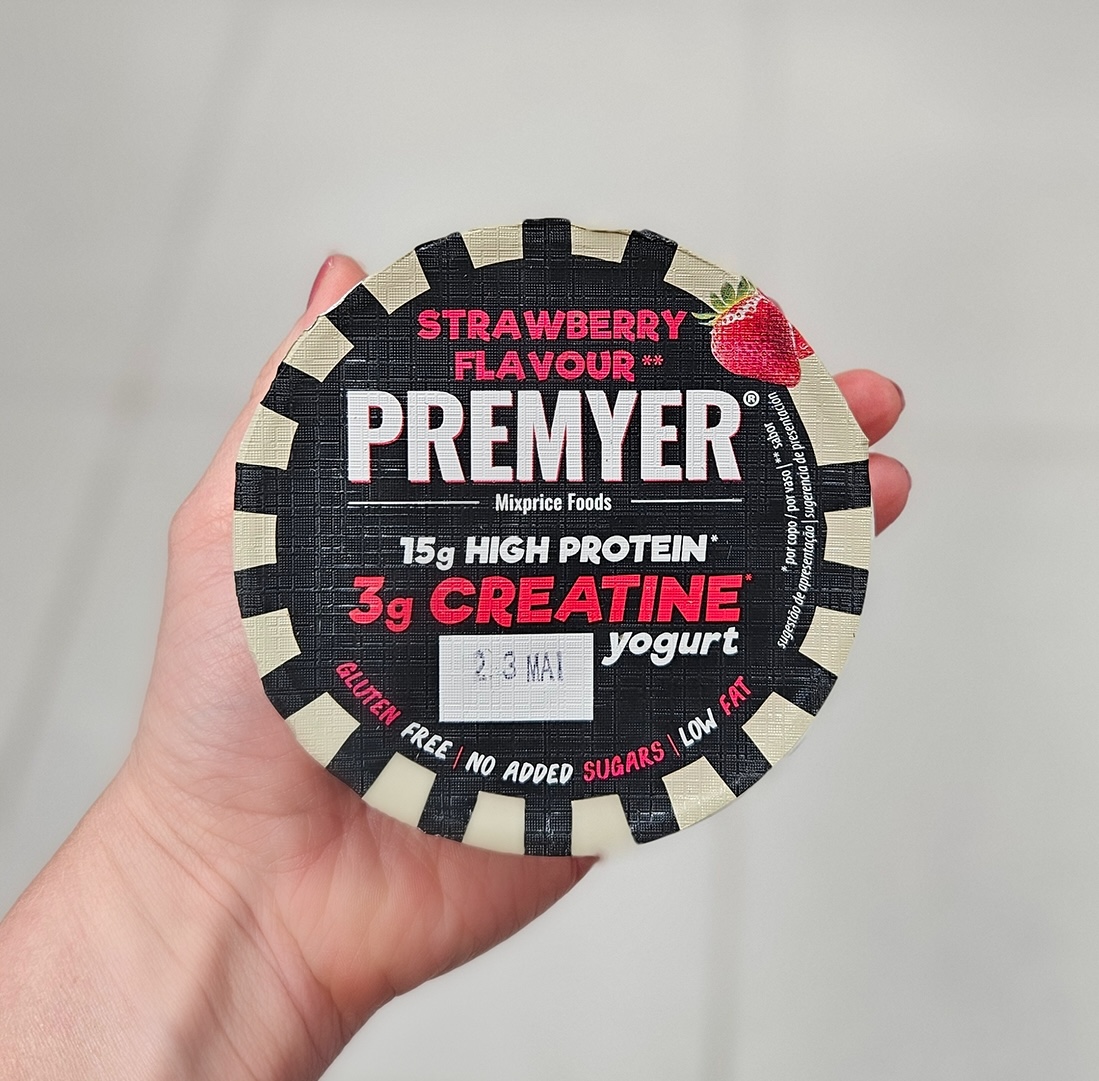
Premyer’s drinkable creatine yoghurt, which we spotted in early 2024 and highlighted in 10 Key Trends 2025, has now been launched in a spoonable version. Creatine is one of the most well-researched sports supplements and interest is now on the rise thanks to new research emerging and growing consumer awareness growing. Consumers motivated by sports and fitness are early adopters of ingredients that help them perform better, and the target consumer here is accustomed to high protein dairy with a sports positioning and recognises creatine and its sports and energy benefits.
Products like this represents the product development opportunity of finding ways to incorporate creatine into snacks and products made with animal protein, where it naturally fits, such as meat snacks or high protein dairy.
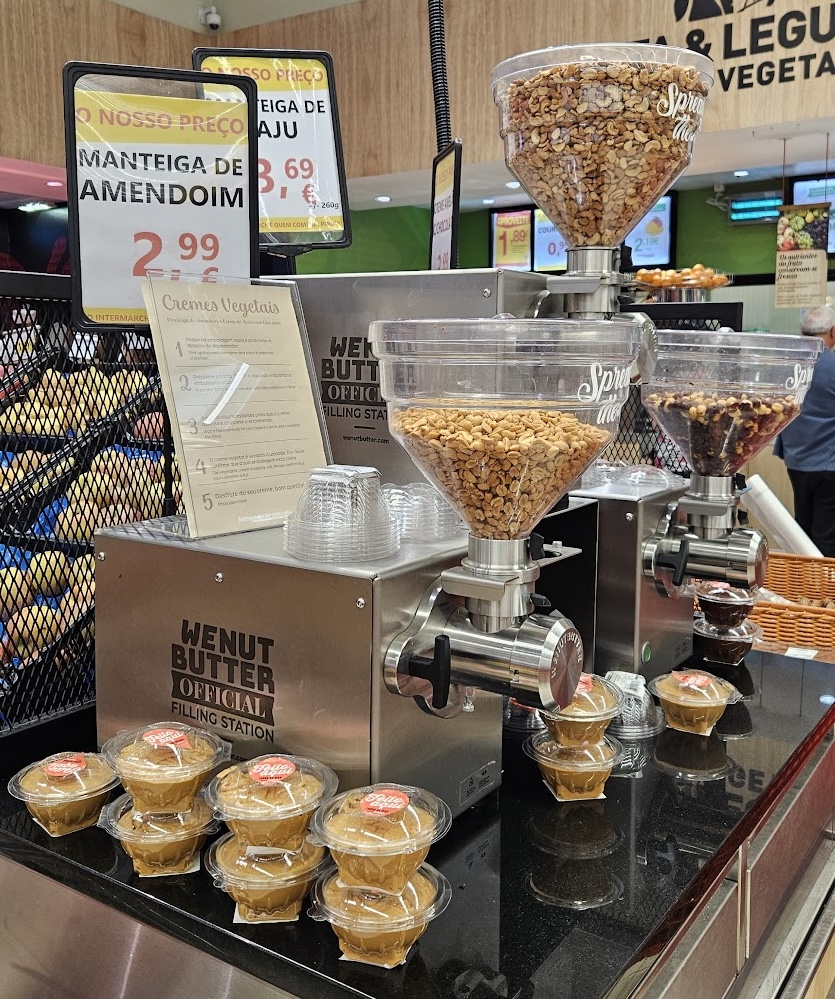
Demand for nut butters is growing in many countries. Intermarché has done something very new, swapping out its freshly squeezed orange juice station for one where consumers can make their own nut butters.
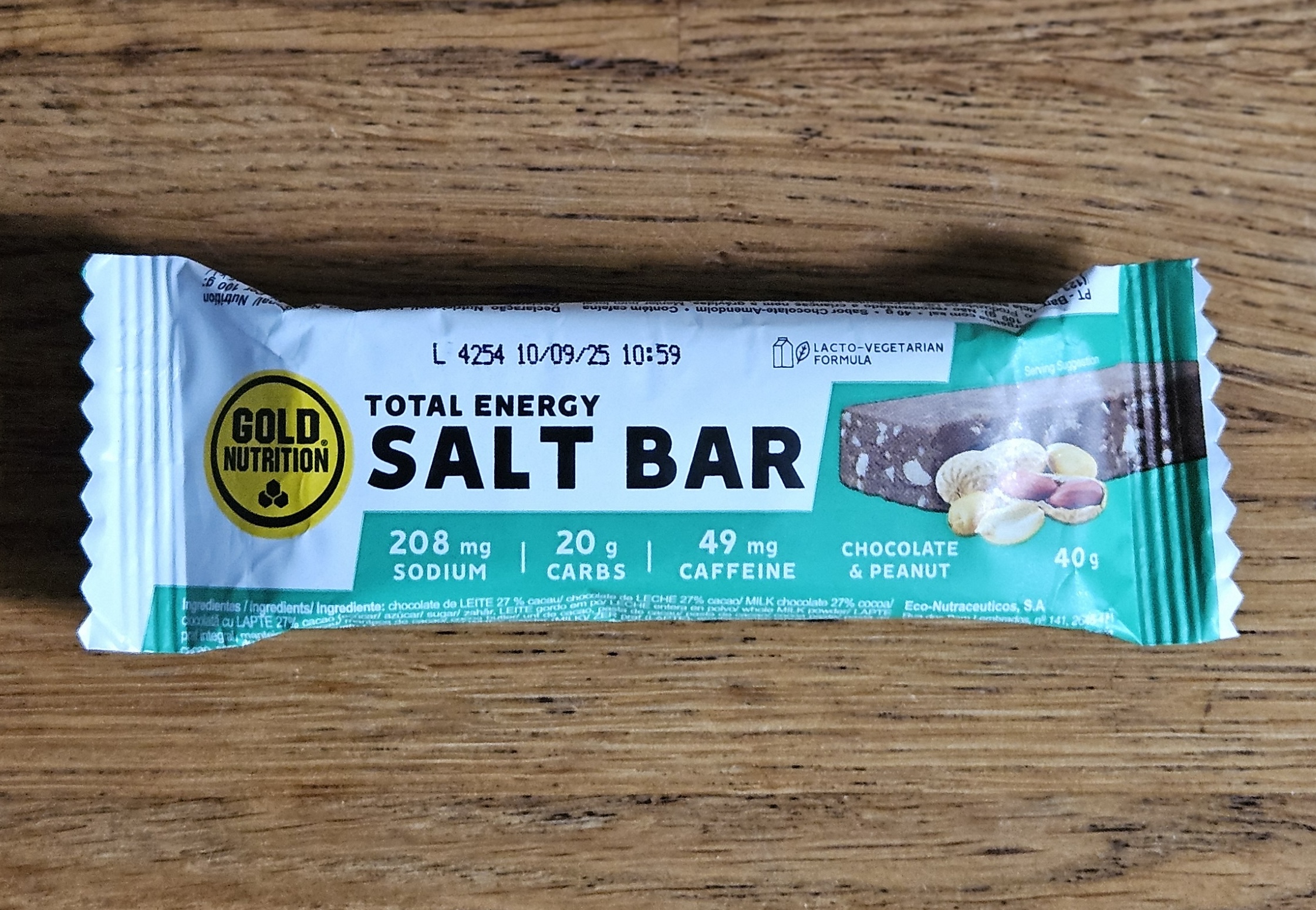
While sodium and caffeine are ingredients that many consumers try to limit their intake of, they tend to be sought after by sports consumers. This snack bar from Gold Nutrition, found in the sports nutrition aisle at Intermarché, targets exactly those consumers. With 208mg of sodium and 49mg of caffeine, both representing around 10% of the RDI, the product promises a distinguishable salty taste which it says can help prevent hyponatremia. Meanwhile, the caffeine is said to “allow energy supply for rapid absorption”. The bar also contains taurine, B vitamins and BCAAs.
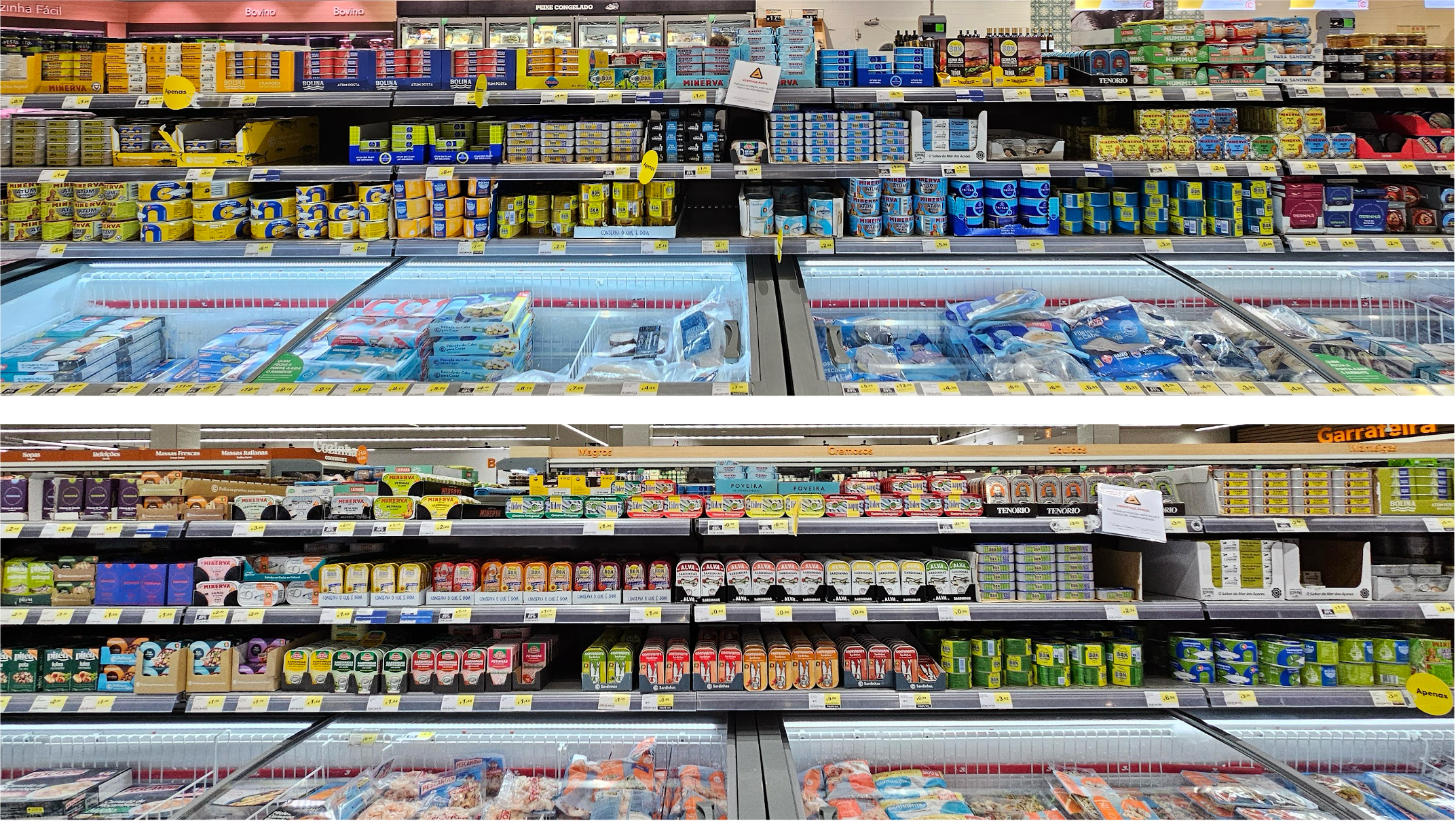
When you see these displays, it becomes clear where the tinned fish trend comes from – although in Portugal it is far from a trend and more of a staple that Portuguese consumers have relied on for more than a hundred years. Tinned fish forms part of the diet of many Portuguese families and is a great example of a nutrient-dense animal protein sold in traditional yet convenient packaging.
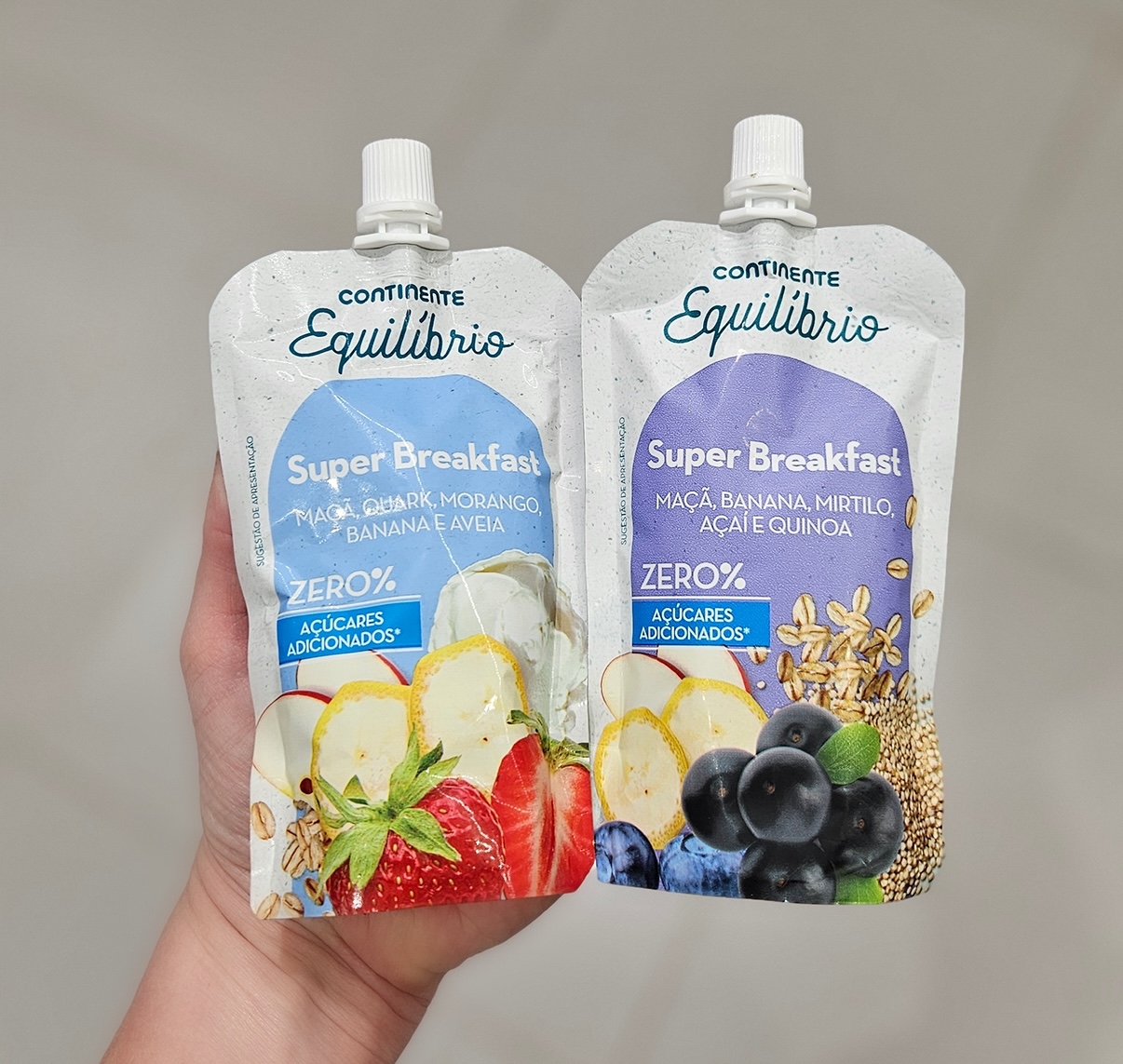
The pouch format is traditionally associated with kids food in many markets, but some brands are attempting to take this convenient packaging format into the adult space. Pictured here are two products from a four-strong range of pouched breakfast product from Continente’s own better-for-you brand Equilíbrio, made with ingredients such as fruit, quark and quinoa.
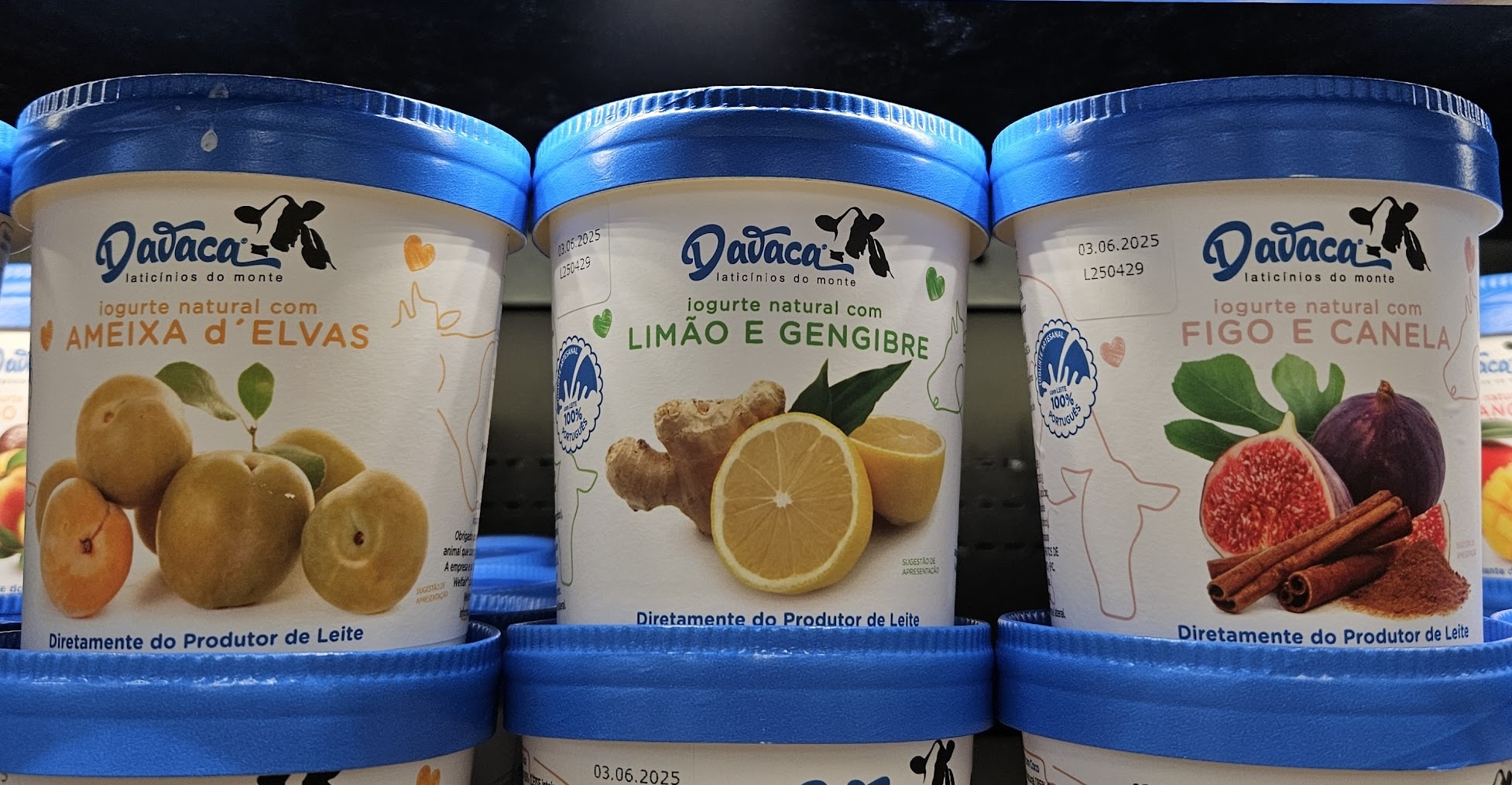
Based in the nearby Alentejo region, Davaca’s yoghurts caught our attention with their unique flavours and eye-catching packaging. The product on the left is flavoured with the traditional Portuguese fruit Elvas plum, grown exclusively in the Alentejo region where it enjoys a PDO (Protected Designation of Origin) status. The other two flavours are lemon & ginger and fig & cinnamon. Davaca has produced its artisan yoghurts since 2014 and uses only local milk and locally sourced fruit.
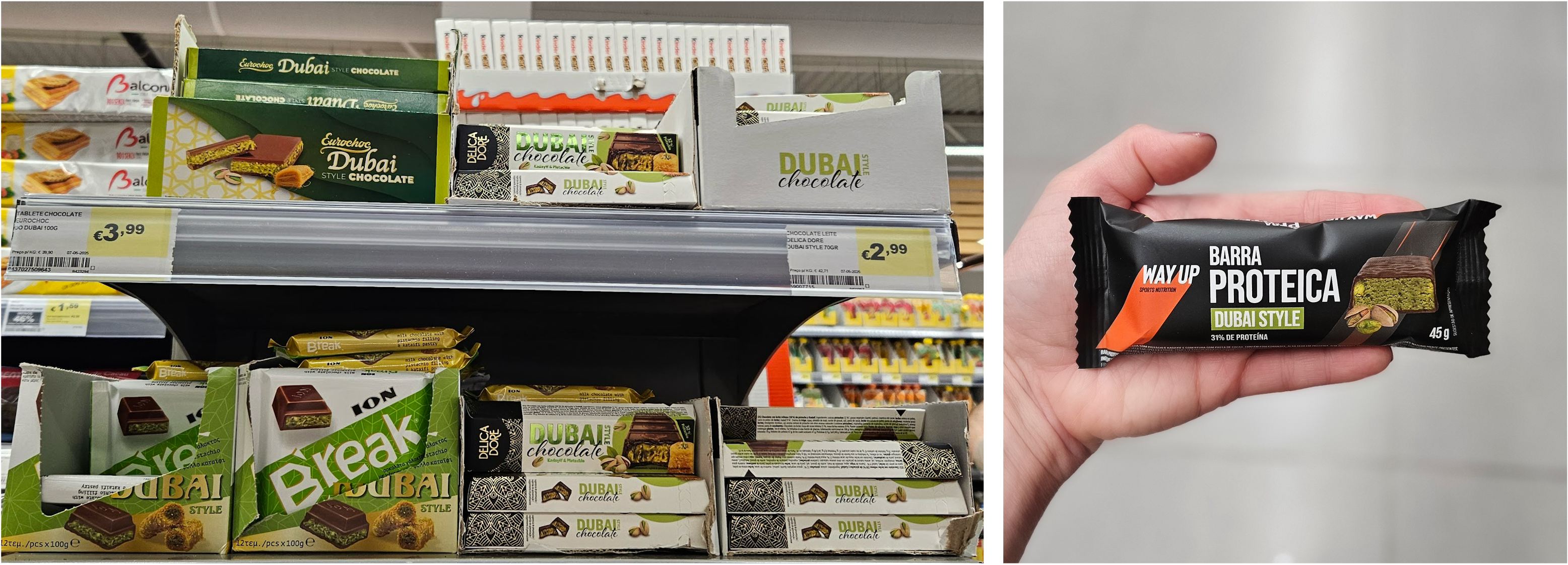
The Dubai chocolate trend is everywhere – and Portugal is no exception. As we wrote in NNB May the trend has spread to the better-for-you space, with product developers eager to give consumers permission to indulge in the latest food craze without feeling guilty about it. This is shown by the product on the right, a dairy-based protein bar with a “Dubai style” flavour from Portuguese sports nutrition brand Way Up. The bar delivers 14g of protein per 45g bar, along with 11g fibre and 2g of sugar.

